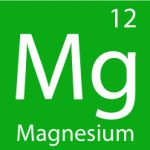Maybe you have been hearing a lot about magnesium lately and been asking yourself just what is magnesium for?
Many people in the community have never even heard of magnesium before they are told they are deficient in it and need to supplement their intake. Magnesium is not just a mineral that exists in mineral baths and mineral water. It is a vital ingredient to life and living and your own body is full of it!
So it is little wonder that people out there are left reeling after leaving the doctor’s office with a new prescription for magnesium supplements and a confused look on their face.
Once you understand the ins and outs of magnesium and what it actually does, then you will grow to respect and want much more of this great mineral.
Read about side effects of magnesium supplements here.
What is Magnesium For in the Universe?

Magnesium is a naturally occurring chemical element. It is on the periodic table with the symbol Mg and is the ninth most abundant element in the entire universe, being instrumental in the formation of new star systems. (source Wikipedia)
Magnesium is added to alloy metals for its lightweight durability and for this reason it has been used in the aerospace industry.
Where is Magnesium Found?
It is found in the earth’s crust, is the third highest occurring element in the ocean after sodium and chloride and is also found in large amounts inside the human body.
In the body, most of the magnesium is stored in the bones. The next highest concentration is in the heart cells, and primarily in the left ventricle which is the chamber that initiates each heartbeat. After the heart, the rest of magnesium is primarily inside the muscle cells throughout the body with the remaining 1% circulating in your bloodstream.
Magnesium is stored in usually abundant supply inside your body but it is not produced within at all, instead relying on external manual input for supply. This means you have to consume enough magnesium either through your diet or by using magnesium supplements in order to maintain the required amount for your body’s optimal function.
Here is a list of magnesium rich foods to help improve your intake.
Magnesium In Your Body
What is Magnesium For? – A Stronger Skeleton
Magnesium in the skeleton serves to support the function of bone cells called osteoblasts and osteoclasts that generate new bone. In this way, magnesium prevents osteoporosis and bone degeneration by promoting new bone growth which leads to a stronger skeletal system.
What is Magnesium For? – A Healthy Heart
Magnesium assists your heart to beat smoothly and regularly by relaxing the muscles after they contract each time. The calcium content of heart muscle cells causes the contraction which is then balanced out with every beat by the influx of magnesium which relaxes.
What is Magnesium For? – Normal Blood Pressure
Magnesium prevents high blood pressure from becoming a real problem by relaxing and widening the smooth muscles of your blood vessels. This leads to lower blood pressure by decreasing the effort required by your heart to send your blood around your body.
What is Magnesium For? – Energy
Magnesium is responsible for the breakdown of sugars and carbohydrates into ATP which is the molecule that provides us with energy. Tiredness and fatigue is a major sign of magnesium deficiency because without enough, we simply can’t make enough energy molecules to make our bodies’ function. This is far reaching as ATP not only powers your muscles, but also works at a cellular level to maintain your electrolyte balance and to regenerate cells.
What is Magnesium For? – Balance
Your electrolytes are sodium, potassium, calcium and magnesium. These 4 pass in and out of your cells depending on external forces all the while trying to maintain a balance between the minerals and the fluid.
Magnesium provides the energy for this important work by opening the channels that are needed for the molecules to move between each compartment – the cells, the fluid surrounding the cells, and the blood. If the electrolytes are out of balance, such as when you are dehydrated this can lead to problems with the regulation of nerve and muscle function, the acid/base balance in your body as well the balance of water.
The calcium-magnesium balance is put out by the widespread use of calcium supplements. Magnesium regulates the amount of calcium in the system and prevents calcium buildup from occurring. Magnesium stops the formation of gallstones, kidney stones, and calcium deposits in blood vessels.

What is Magnesium For? – Mind Relaxation
Magnesium plays a vital role in the production of serotonin which is the ‘feel good’ hormone. Depression and anxiety disorders are often directly related to the availability of serotonin. With sufficient amounts of magnesium, your serotonin levels are healthy, which results in less anxiety. This also allows you to sleep better. When you have enough magnesium, getting to sleep and staying asleep happen much more easily.
What is Magnesium For? – Muscle Relaxation
Magnesium is also for muscle relaxation. One of the classic symptoms of magnesium deficiency is muscle cramping and twitching which is due to the fact that without enough magnesium, the muscle cells will easily contract, but are not able to relax effectively.
This is not only true in the muscles that you use for walking and smiling, but don’t forget your most important muscle – the heart! Muscle cramps and twitches in the heart can cause serious damage such as heart attack and arrhythmias so it is vital that it gets enough magnesium to provide the most essential function of beating normally and sending the oxygenated blood around your body effectively.
Stress is a major risk factor in the causing of magnesium deficiency as it will cause muscle tension which the magnesium in your body works hard to relax, only to overuse the body’s stores. Because magnesium is not produced by the body at all, in high stress situations we especially need to up our intake.
What is Magnesium For? – Enzyme Function
Magnesium is known as a co-factor to thousands of enzymatic function in the gut. What this means is that the enzymes that try to digest and breakdown the food that we eat within our digestive system – the mouth, oesophagus, stomach, small intestine, large intestine – require enough magnesium to help them in their function. Without the co-factor magnesium, the vitamins and nutrients we eat would not be adequately absorbed and used by the body.
Are you getting enough magnesium?
Have a look at Magnesium Deficiency Symptoms to discover if you may need more magnesium.
Then discover the Sources of Magnesium and find out the Top 40 Magnesium Rich Foods and the Best Magnesium Supplements.
Comment
Please comment below if you have any questions left on what is magnesium for.

